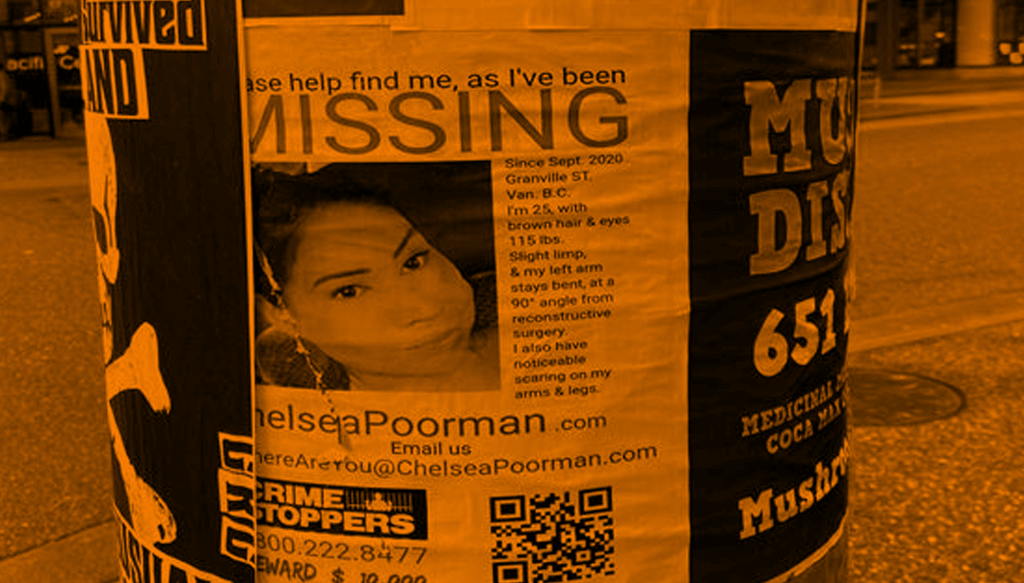Murdered and Missing Indigenous Women, Girls and 2S+ persons
By Beth Ferguson a UCTE member – Local 20219
National Indigenous History Month began not with a celebration of Indigenous peoples in Canada, but with a solemn reminder of Canada’s treatment of Indigenous peoples. This week, we consider the tragic reality of many Indigenous women, girls and 2S+ persons in Canada.
For those that do not know me, my name is Beth Ferguson. I am the A/Manager of the Indigenous Relations Unit (IRU) at Transport Canada in Pacific Region. I am a member of the Mohawks of Bay of Quinte and a member of the Pacific Aboriginal Network. I am a mother.
I have reflected on the Indigenous residential school legacy and on MMIWG2S. Like many, I have a lot to learn about MMIWG2S. I want to share a personal story.
I often go on family walks around my neighbourhood with my young children. We always (always!) stop and read missing cat posters. Based on the number of posters, there are a lot of missing cats in East Vancouver. We read the posters. We talk about the missing cats by name and how their families must feel. We sometimes take pictures so we remember what they look like in case we see them. My daughter and her friends are so concerned about the increasing number of missing cats they have proposed a “cat patrol” to find these cats and return them home.
You might be thinking: Beth, this is an unconventional way to bring us to the topic of MMIWG2S. I assure you, this is not a story about missing cats. It is a story about my own complacency towards MMIWG2S.
I contrast my missing cats story with a more recent family walk in downtown Vancouver. My daughter noticed a missing persons poster. Given her interest in missing cats, a missing person was a significant learning opportunity. The poster was for Chelsea Poorman, a 25-year-old Cree woman from Kawacatoose First Nation, who was last seen in downtown Vancouver just after midnight on September 6, 2020. Chelsea’s family is trying desperately to find her – they have posted photos, advertised on billboards, and held a candlelight vigil. If you are in Vancouver, you may have also seen these posters. Together, my daughter and I read the poster. I explained that sometimes bad things happen to Indigenous women and girls.
My daughter then looked up at me and asked if something bad was going to happen to her. I responded (confidently, as I can) to my blue-eyed, strawberry-blonde haired child that nothing like that was ever going to happen to her. It is heartbreaking to acknowledge that my promise to my daughter is one that many other Indigenous mothers cannot make. Indigenous women and girls are vulnerable in ways other women and girls are not.
I have normalized that bad things happen to Indigenous women and girls. I have actually spent more time and effort worrying about missing cats than missing Indigenous women. The number of missing and murdered Indigenous women and girls in Canada is unacceptable. It is a product of our complacency. I need to do better. We all need to do better.
You should be asking: So, Beth, what are you going to do about it? I am going to do the work. I am going to do better. These are changes I am going to make in my life to bring my attention to MMIWG2S:
- I commit to taking my daughter to the MMIWG2S Annual Memorial March in the Downtown Eastside (DTES) next February 14, 2022.
- I commit to taking photos of missing posters for Indigenous women, girls, and two-spirited people whenever I see them. Here is my first one of these posters. I hope this might inspire you to take photos. Maybe, if we all do this, we can hold space for these Indigenous women, girls, and two-spirited people. Maybe we can help bring them home or give their families closure.
- I also made a donation to an organization supporting women on the DTES.
This is a start. But more can and needs to be done for MMIWG2S.
It is my sincerest hope my story inspires you to reflect on your awareness of MMIWG2S. If we all make changes in our lives, we can work to help MMIWG2S and their families, and to create safe places for Indigenous women, girls, and two-spirited people that many non-Indigenous people can take for granted.
Facts:
- Indigenous women are more worried about domestic violence than they are about most COVID-19 issues.
- Indigenous women most vulnerable to violence in the past three months are in the North, under 35, and have been financially impacted by COVID-19.
- Romantic partners are overwhelmingly seen as the biggest source of violence.
- The financial impact of COVID19 is strongly correlated to violence against Indigenous women.
- Indigenous women and 2SLGTBQQIA people face life-threatening, gender-based violence, and disproportionally experience violent crimes because of genocide based on sexism and racism.
If you are affected by the issue of missing and murdered Indigenous women, girls and 2SLGBTQQIA+ people and need immediate emotional assistance, call 1-844-413-6649.
